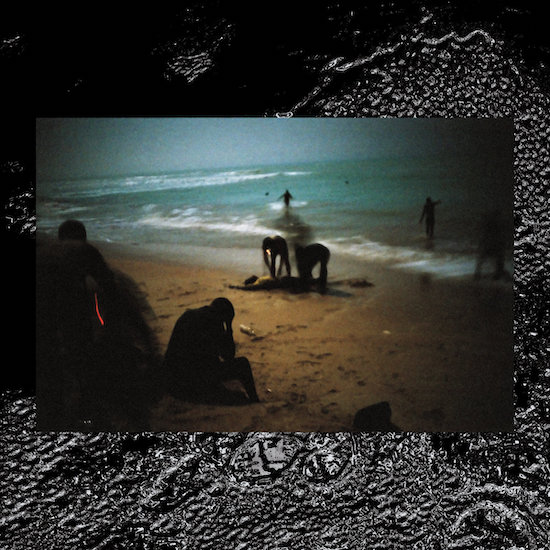Early on in They Can’t Kill Us Until They Kill Us, Hanif Abdurraqib writes of the necessary toothlessness of joy. Joy, being something we cling to at our most wretched, isn’t meant to bite back. This toothlessness, though, can make joy feel like a guilty indulgence in our fraught era. After all, I want teeth to bite with. Even if I’m a useless Pekingese puppy nipping pathetically at the ankles of corrupt, entrenched power, I want to bite. I want to cling to the things that have teeth, that will galvanise me, that will sharpen my own. Harrga’s Héroïques Animaux De La Misère has rows and rows and rows of fangs, each tipped with venom.
A collaboration between vocalist Dali de Saint Paul and Miguel Prado, Harrga’s debut LP is the second proper long-player from the Bokeh Versions-affiliated collective Avon Terror Corps (after the dish-rattling Mezzi Umani Mezze Macchine by Kinlaw & Franco Franco). Over the last few years, Bokeh Versions have established their own distinct, idiosyncratic dialect of dub with a complex vocabulary, proving themselves to be one of the most essential labels going. (Just this year, they’ve released Jay Glass Dubs’s absolutely immense Epitaph, Sikka Rymes’s blunted Love Di People, and the fourth-world dub excursions of Sea Urchin’s Tahtib.) Now, with two releases and a comp under their belt, it seems like Avon is preparing to do the same with mutant, industrial noise.
Harrga’s contribution to this exciting, heady beginning is a thirty-odd-minute-long interrogation of the migration crisis, exploring European complicity in the horrors that refugees experience. Or, I should say, that is what I understand it to be. As a typically thick American, I speak one language competently (English) and another incompetently (Italian). The bulk of Héroïques Animaux De La Misère‘s lyrical content is in French or Darija, so mostly, I’m at a loss. It doesn’t matter, though – Dali de Saint Paul’s varied, technically incredible vocal performance contains an impossible density of feeling, requiring no translation. When she spits words, you can almost hear her seething between lines, the sound of each phrase ringing out furiously, righteously. When de Saint Paul lashes out, her delivery never feels wild – even at its most extreme – but always, always perfectly controlled, like a viper striking with exacting precision.
Miguel Prado’s harsh electronics perfectly compliment de Saint Paul’s performance, giving her just enough room to manoeuvre. His instrumentation is devastatingly heavy. Sometimes it burbles and shrieks, as on ‘Le Mer’. Sometimes it knocks and thumps, as on ‘Artaud’. Often, it’s joined by field recordings both placid and distressing, giving some of Harrga’s compositions a distinctly collage-like feel. Prado’s backing tracks, though they can be bleak and unsettling and unsparing of their listeners, possess great animus, and the grim sort of beauty one might encounter in an excellently framed war photograph.
Certainly, this is harrowing stuff, but it never feels exploitative. Héroïques Animaux De La Misère is an act of solidarity. By taking the name Harrga ("a burn"), de Saint Paul and Prado honour the harragas, those refugees who must burn their papers – and by extension, their identities – before attempting a border crossing. It would be easy, I think, for some to describe Harrga’s music as oppressive, but that would be wrong-headed. This is liberation music. How could it ever be easy? Why wouldn’t it have teeth? Why wouldn’t it need to bite?


